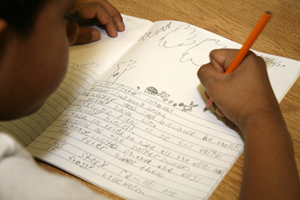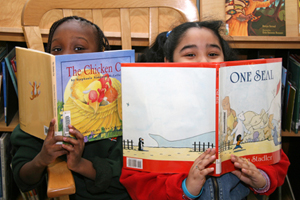
HELPING YOUR CHILD WITH THEIR LEARNING
Supporting your child at home is part of the learning process. Working together: teachers, support staff, parent and caregivers, and students - we make learning happen.
What can you do to help your child? We have shared a number of resources with parents at our special events. Some resources are available in English only, but others do have translations in a number of languages.
The Ministry of Education provides a number of "Tips and Tools" that can be access via the parent page. This page provides the web address and other information.
People for Education, a Canadian, parent based organization also have Tips for Parents fact sheets. Check out their website at www.peopleforeducation.ca for more information.
English as a Second Language
 Learning in your mother tongue is an important key to language learning. We encourage families to help their children learn by: Reading, Writing and talking about our world and learning at home. Share and encourage your child by reading to them in your language of preference. Not only will you expand your child's vocabulary but you will have a special time to share wtih them.
Learning in your mother tongue is an important key to language learning. We encourage families to help their children learn by: Reading, Writing and talking about our world and learning at home. Share and encourage your child by reading to them in your language of preference. Not only will you expand your child's vocabulary but you will have a special time to share wtih them.
Visit your local public library and ask about "dual language" books (with English and the home language), or books in your mother tongue. Share the love of reading and learning with your child.
The website sheet for internet locations to help your child with their learning.
Language and Learning
 Language learning comes in many forms: we read and learn from the signs and environment around us. We are constantly making sense of our world through words.
Language learning comes in many forms: we read and learn from the signs and environment around us. We are constantly making sense of our world through words.
There are a number of resources available through the Ministry of Education and other sources.
Check out:
Mathematics Learning

Every day in every way we use mathematics: in our homes, school, workplaces, and in our community.
Math is an exciting world that children enjoy exploring. By talking about the math in their world, you are helping your child learn. Have discussion about shopping for food, recipes, driving and buying gas, organizing a party, setting up a home schedule, and more - these are all important ways we can use math langauge and improve our children's understanding of the vocabulary (words) and concepts (curriculum content) to be learned.
A number of articles are available that talk about how math has changed since many adults were in primary school. We also provide some of the research that is behing our Reaching Every Child focus in Ontario. Math today is beyond the adding, subtraction and fact memorization. Children are being asked to understand concepts at a higher level so that they can transfer their learning into other situation and the real world.